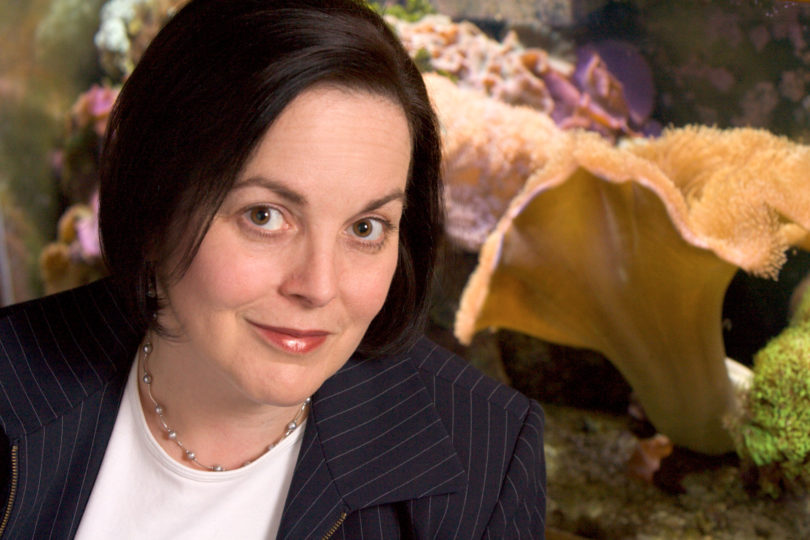To hear Catherine Teare-Ketter tell it, everything is the program’s fault: the astoundingly low drop rate, the increased student engagement, the improved academic performance.
All of it, she says, comes courtesy of SciTrain U.
The program is run out of the Disability Resource Center thanks to an $148,785 grant. It aims to help teachers in the STEM disciplines of science, technology, engineering and mathematics make their lessons more accessible for students with disabilities by making their classroom materials easier to use and understand.
But what Teare-Ketter, an academic professional in the School of Marine Programs, found out is that by incorporating principles designed for disabled students, the courses have become more effective for all students.
“The whole purpose of this is that recent literature on academic performance and success in STEM majors indicates that students with learning disabilities or some type of special need are not being successful in those majors,” she said. “So there’s been a lot of research done to understand what needs to be done to be successful in the STEM majors.”
The students in Teare-Ketter’s class use a variety of new pedagogical methods called Universal Design for Learning. It refers to principles designed to make learning easier and more effective. For example, students take notes in groups and then upload them to a special website, where others review and grade them for thoroughness. Teare-Ketter also podcasts her lectures and provides lecture outlines in advance.
“By doing these things, you maximize student access to course material and you not only meet the needs of special needs students, but you also improve access for all students,” she said. “In a sense it makes the course more accessible for everybody and hopefully everybody’s academic performance will improve.”
About 10 large, introductory STEM classes have used SciTrain U so far, said Brendan Leahy, grant coordinator for the program. The grant focuses on classes to help disabled students become less underrepresented in STEM disciplines.
“We’re gunning for those large groups so that we’ll have more of an impact. It’s also good to help some students who may be struggling early on,” Leahy said. “But we want something that benefits everyone. When you try to make an accommodation for someone who can’t see a graph very well, what you’ll find is that there are people who can’t see the graph and then others who can’t understand it, so making it better helps everybody. Universal Design is really a good teaching tool for all students. That’s what’s exciting about it.”
Each instructor who becomes a part of SciTrain U meets with a representative who helps incorporate Universal Design components into their classes. Since every class and teacher are different, Margaret Totty, DRC representative, seeks to find the perfect fit for each course and teacher.
Marguerite “Peggy” Brickman, an associate professor in biological sciences, has been part of the SciTrain U for two years. After her first year, she met with a SciTrain U representative from Georgia Tech to better tune the tools to her class. Now she spends less time reviewing student notes and more time teaching.
“He asked me what my ‘pain points’ were, and we found ways of working out the note taking (in groups) so that I didn’t have to spend a lot of time on it,” she said. “He asked me what I felt comfortable offering to the students as a sort of bonus for taking notes and posting them online-how much credit I thought it could be worth.”
That kind of tweaking is invaluable, she said. It’s what makes the program work for her.
This three-year program will run through Sept. 30 through the Disability Resource Center, a division of Student Affairs.








